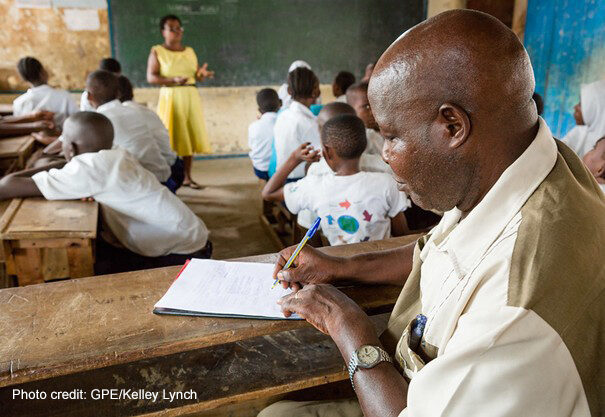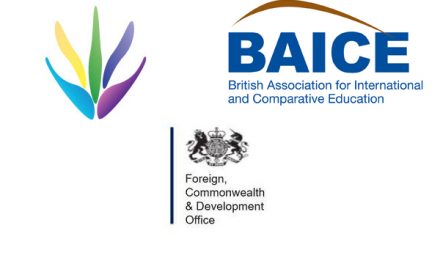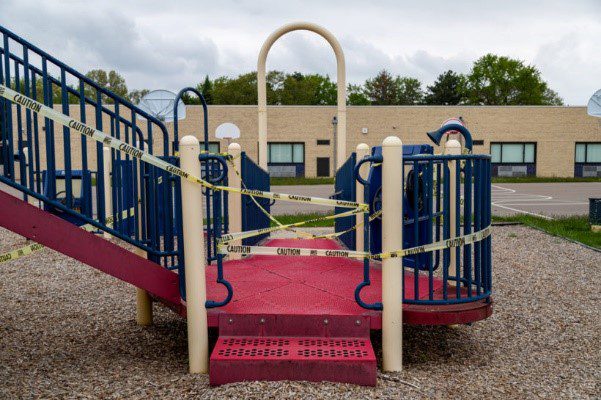This blog was written by Geeta Gambhir and Paola De Munari, National Foundation for Educational Research (NFER). It provides an overview of a policy brief published on the NFER website on 2 July 2025.
UNESCO and the International Task Force on Teachers for Education (2030) estimate that an additional 44 million teachers are needed to achieve universal primary and secondary education by 2030. The commitment to enabling teachers to be professionally trained and well supported happens through the application of appropriate policies. These play a crucial role in mitigating against the global shortage of qualified teachers.
In sub-Saharan Africa, the contributing factors to teacher shortages include a reliance on unqualified and contract teachers, inadequate pre-service training and ongoing professional development, poor working environments and low salaries. These factors are particularly acute when combined with a need for schooling for the rapidly increasing population, against a background of funding shortages.
Comprehensive national teacher policies, properly funded and supported by political commitments are crucial for building a highly motivated and professional teaching workforce, as highlighted by UNESCO’s Teacher Policy Development Guide. We have looked at Kenya, Rwanda and Sierra Leone to understand how the countries’ policies and strategic plans underpinning teacher professional development support this transformation. With different histories and contexts, the three countries acknowledge that a well-qualified teaching workforce is essential to achieving their educational goals and have committed to investing in continuous professional development and support for educators.
Quality teaching encompasses literacy and numeracy skills and holistic teaching practice, incorporating a range of important themes such as equity and inclusion, socioemotional learning (SEL) and, increasingly, the use of technology in education to support teaching and learning (EdTech). Education sector plans, thematic policies and teacher frameworks guide the development of teachers as professionals, adopting a more holistic approach to teaching.
The three countries have policy mechanisms and institutional frameworks that respond to distinct national priorities and implementation settings. They reflect the contextual risks that may hinder the implementation of the sector plans, such as the support from development partners, inadequate funding and political changes. They also highlight cross-cutting issues such as gender, health and emergency management in different ways.
Our review of the policy and education sector plans found that:
- Teacher professional development is a central policy focus in Kenya, Rwanda and Sierra Leone; all countries recognise its importance for education reform. Sierra Leone places additional emphasis on teacher standards and accountability.
- Inclusion is addressed in all three countries: Kenya and Rwanda focus mainly on disability. Sierra Leone takes a broader approach, targeting all forms of marginalisation through its Radical Inclusion Policy, which also addresses gender and parent learners. All countries have policies and plans for learners with special needs that include teacher training.
- Rwanda has an SEL framework with planned training. Kenya’s 2023 education plan mentions a future SEL framework. Sierra Leone integrates SEL into foundational learning without a dedicated framework.
- Rwanda and Kenya have EdTech-specific policies, while Sierra Leone has a general national digital strategy, but no education-specific EdTech policy.
Policy development is shaped by context. Our review found that context is a key factor driving the development of the policies. Countries often employ their own specific framework for policies, to account for the distinct factors that come into play when developing policy. Broad political support is critical for comprehensive and effective policy reform. Contextual complexities or cost can also contribute to fragment or delay policy development. When it comes to implementation, broader support from stakeholders such as development partners is essential, as well as adequate resourcing to track policy effectiveness and ensure effective implementation.






This was such an insightful and timely article! I really appreciated how it highlights that teacher professional development policies must be shaped by the real contexts in which teachers work, rather than assumed one‑size‑fits‑all solutions. The examples from Kenya, Rwanda, and Sierra Leone show how different national histories, priorities, and challenges influence policy design and implementation — and why context genuinely matters for supporting teachers effectively. It made the importance of thoughtful, well‑resourced, and context‑aware policymaking feel so clear and relevant.